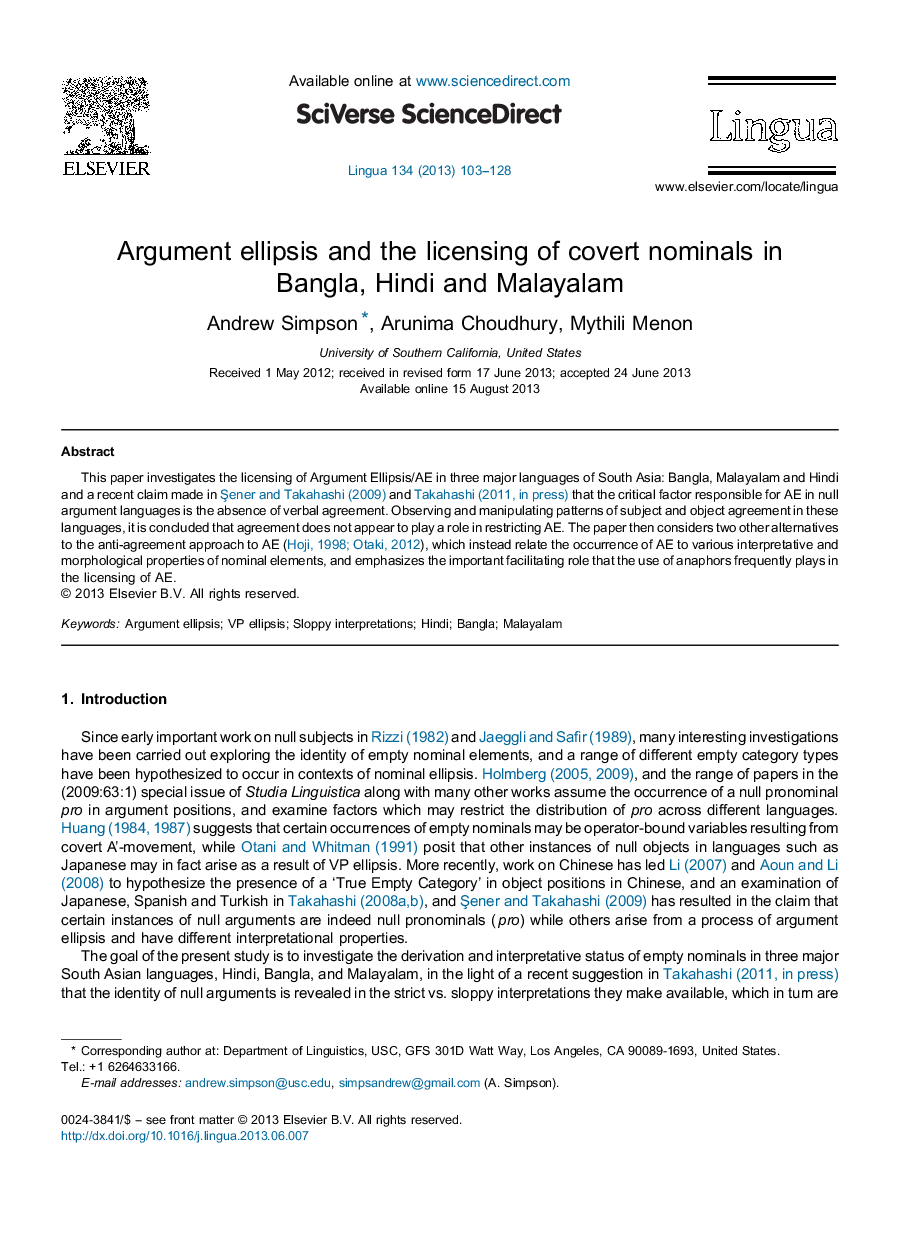| Article ID | Journal | Published Year | Pages | File Type |
|---|---|---|---|---|
| 935568 | Lingua | 2013 | 26 Pages |
•The anti-agreement hypothesis of argument ellipsis is tested and argued against.•The derivation and status of empty nominals in Hindi, Bangla and Malayalam is established.•The role of anaphors in the licensing of sloppy identity readings of null arguments is demonstrated.•Rich context pseudo-sloppy readings of null arguments are investigated and argued to be instances of pro.
This paper investigates the licensing of Argument Ellipsis/AE in three major languages of South Asia: Bangla, Malayalam and Hindi and a recent claim made in Şener and Takahashi (2009) and Takahashi, 2011 and Takahashi, in press that the critical factor responsible for AE in null argument languages is the absence of verbal agreement. Observing and manipulating patterns of subject and object agreement in these languages, it is concluded that agreement does not appear to play a role in restricting AE. The paper then considers two other alternatives to the anti-agreement approach to AE (Hoji, 1998 and Otaki, 2012), which instead relate the occurrence of AE to various interpretative and morphological properties of nominal elements, and emphasizes the important facilitating role that the use of anaphors frequently plays in the licensing of AE.
